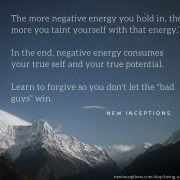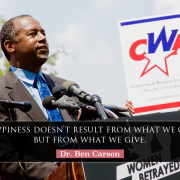Why You Should Stop Being A Victim and Learn How to Forgive
The fact is, violence is not only not a beautiful thing, but it’s also very painful and not without consequences for the perpetrator as well as the victim. – Clint Eastwood
There really is no difference between the bully and the victim. – Lady Gaga
Did you know that if you hold grudges that you’re actually letting the person or people you have that grudge against win? Let’s discuss how you can stop being a victim so you can learn how to be yourself again.
The Rise of the Victimhood Culture
I was recently made aware of a post that was published last Friday (9/11/15) about The Rise of Victimhood Culture. In it, the author, Conor Friedersdorf, talks about a new scholarly paper (Microaggression and Moral Cultures, Bradley Campbell and Jason Manning) that actually identifies that a culture of victimhood is indeed on the rise – especially in college settings.
He also mentions three types of culture: honor, dignity, and victim.
Honor Culture:
These are types of culture in which people (mainly men) maintain their honor by responding to insults, slights, and violations of rights by self-help violence. “Cultures of honor tend to arise in places where legal authority is weak or non-existent, and where a reputation for toughness is perhaps the only effective deterrent against predation or attack,” write Campbell and Manning. They note that honor cultures still exist in the Arab world and among street gangs in Western societies. (Fans of Sci-Fi would know that Klingons are all about this kind of culture.)
Dignity Culture:
During the 19th century, most Western societies began the moral transition toward dignity cultures in which all citizens are legally endowed with equal rights. Dignity does not depend upon reputation but exists as unalienable rights that do not depend on what other people think of one’s bravery. Having a thick skin and shrugging off slights become virtues because they help maintain social peace. The aphorism that “sticks and stones may break my bones, but words will never hurt me,” is practically the motto of dignity cultures.
Campbell and Manning add, “Insults might provoke offense, but they no longer have the same importance as a way of establishing or destroying a reputation for bravery. [Furthermore], when intolerable conflicts do arise, dignity cultures prescribe direct but non-violent actions.”
Victim Culture:
And just so we have a definition, in a victim culture individuals and groups display high sensitivity to anything that conflicts with them. When they have a conflict, they have a tendency to handle the conflict through complaints to third parties (such as cops, blogs, petitions, and the government) and seek to cultivate an image of being victims who deserve assistance.
Victim Cultures – Are They Good or Bad?
At the end of Conor’s article, he asks if Dignity Culture is better than Victim Culture. At face value, I think that it’s kind of hard to tell. If you see wrongs in the world and want to do something about them, the easiest way to do that is to play the victim. It is effective and I think that’s why so many people have started doing it.
That said, does that make it right?
If you want to correct a social imbalance perhaps at the price of your own personal freedom, it just might seem like the most effective way to do it. If that’s what you believe is right, then sure. I guess it’s right from that perspective.
However, if you’re like me, and you don’t want the outside world to define you (and you especially don’t want your personal freedoms taken), then the first thing you have to realize is that playing the victim card puts a stereotypical label on you. That label might be that you’re weak, that you’re ignorant, or you just might be Chicken Little (the sky is falling!).
This is why the Dignity Culture is called what it is. In the dignity culture’s perspective, people who cry that they are a victim lack dignity. They feel that victim’s lack self-respect and a sense of pride. To a point, this is understandable. No one likes a tattle-tale. So people who continually cry wolf are eventually going to wear out their welcome.
Not only that, but often times you can see the victim become the bully. In one instance, one group might see the first group getting preferred treatment due to their victimization. That second group might feel belittled themselves. Another instance might be that the victim now feels that they have a right to act a certain way. That if others do it to them, then they’re allowed to do it to others.
To me, I can’t say that the Dignity Culture is better than the Victim Culture. I think both have some good and negative traits to them. There are times when Whistleblowing needs to occur. In a straight Dignity Culture, it would never happen. People would be told to suck it up regardless of whatever occurred. However, if someone is repeatedly using the victim card to get things that they believed are entitled to them, they need to get a better understanding of what Rights and Privileges are.
Don’t Take Things Personal – Learn to Live through Forgiving
So how does this all relate to living a happier life and a more fulfilling career? It’s actually pretty simple.
The more things that we trust third parties to solve the less power we give ourselves. The less power we give ourselves, the less potential our life will have. Unless we expect third parties to give things to us, we must work for them ourselves.
To work for things takes energy. So does holding in negative energy towards others. The more negative energy you hold in, the more you taint yourself with that energy. In the end, negative energy consumes your true self and your true potential. Learn to forgive so you don’t let the “bad guys” win.
Homework:
Are you holding any grudges? If so, ask why you hold them. Is it from something that happened last week? Last month? Or last decade? How long is enough to punish yourself with those emotions. The longer you let other people get to you, the longer they’ve “won”.
If you’ve let go of some grudges, let us hear about them below and how you’ve felt since releasing that self-imposed stress.








